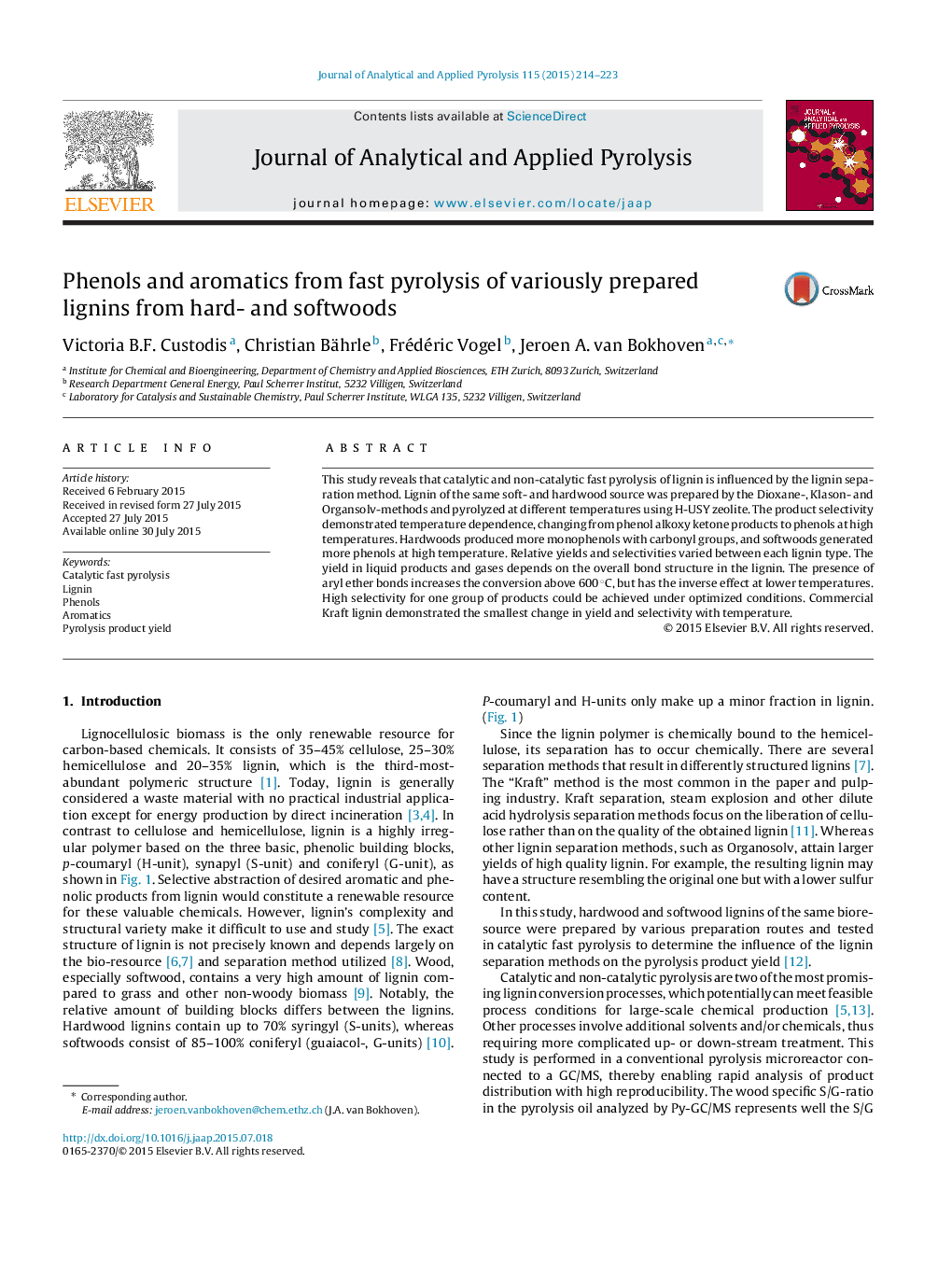| Article ID | Journal | Published Year | Pages | File Type |
|---|---|---|---|---|
| 1197095 | Journal of Analytical and Applied Pyrolysis | 2015 | 10 Pages |
•Systematic study on the influence of lignin preparation on pyrolysis product yield.•Fast pyrolysis of variously prepared lignins shows different thermal behavior.•Aryl ether bonds in lignin are decisive for the affinity for catalytic upgrading.•Kraft lignin is highly degraded and shows less sensitivity to temperature.•Hardwood lignins produce more monomers due to more stable intermediates.
This study reveals that catalytic and non-catalytic fast pyrolysis of lignin is influenced by the lignin separation method. Lignin of the same soft- and hardwood source was prepared by the Dioxane-, Klason- and Organsolv-methods and pyrolyzed at different temperatures using H-USY zeolite. The product selectivity demonstrated temperature dependence, changing from phenol alkoxy ketone products to phenols at high temperatures. Hardwoods produced more monophenols with carbonyl groups, and softwoods generated more phenols at high temperature. Relative yields and selectivities varied between each lignin type. The yield in liquid products and gases depends on the overall bond structure in the lignin. The presence of aryl ether bonds increases the conversion above 600 °C, but has the inverse effect at lower temperatures. High selectivity for one group of products could be achieved under optimized conditions. Commercial Kraft lignin demonstrated the smallest change in yield and selectivity with temperature.
